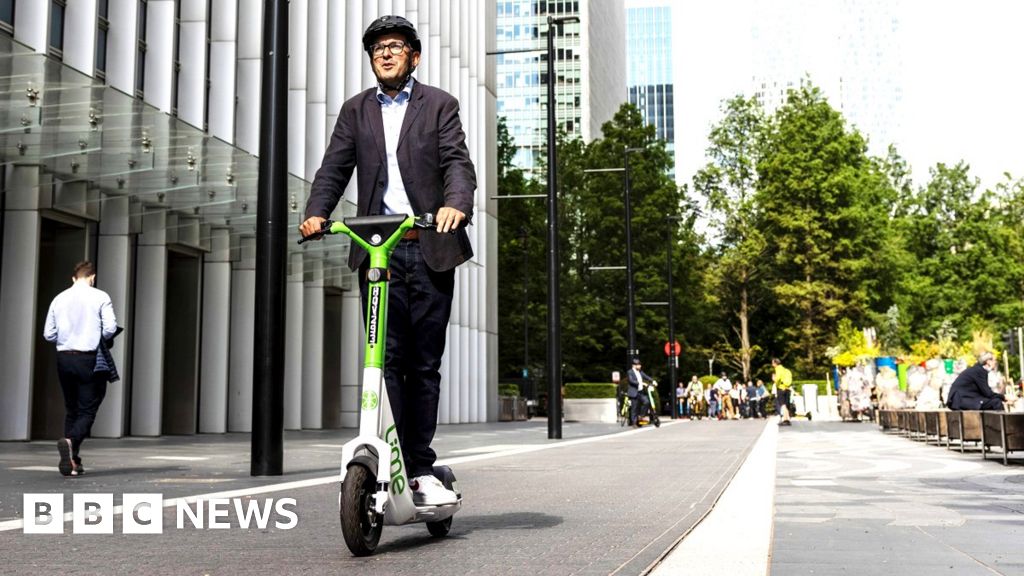London is the latest UK city to trial e-scooters – which the government hopes will be a more environmentally-friendly way to travel.
More than 30 areas – including Newcastle, Bristol and Bournemouth – are already operating rental schemes.
The Covid pandemic brought the trials forward, because they offer people a way of getting around at a social distance.
What’s happening with the London trial?
- Ealing
- Hammersmith and Fulham
- Kensington and Chelsea
- Richmond upon Thames
Scooters can also be hired in Canary Wharf and ridden through the borough of Tower Hamlets.
The City of London is due to join in July.
The most powerful privately-owned e-scooters can reach up to 68 mph (110 km/h) but rental e-scooters in the UK have maximum limits of 15.5mph (24.9km/h)
The London trials will use “geo-fencing” technology to stop the scooters being left outside of set boundaries – and “go-slow areas”, where the maximum speed is reduced to 8mph (13km/h) for safety.
Hire charges vary, but it typically costs £1 to unlock an e-scooter (using a smartphone app) plus a fee of 14p-20p per minute.
Front and rear lights will be on throughout a rental and there will also be an audible warning system which riders can use without adjusting their grip of the handlebar.
Aren’t e-scooters illegal?
The only e-scooters that can be used on public roads are those rented as part of government-backed trials.
If you own an e-scooter, you can only use it on private land and not on public roads, cycle lanes or pavements.
Why can’t they be used on public roads?
Currently, there isn’t a specific law for e-scooters so they are recognised as “powered transporters” – falling under the same laws and regulations as motor vehicles. They are subject to all the same legal requirements – MOT, tax, licensing and specific construction.
And so, because e-scooters don’t always have visible rear red lights, number plates or signalling ability, that’s why they can’t be used legally on roads.
The London Cycle Campaign (LCC) has called for e-scooters to be legally used on cycle tracks and lanes, saying they offer a “cleaner, low carbon alternative to cars and buses for those who can’t or don’t want to cycle”.
Do I need a driving licence?
If you have a provisional licence, you don’t need to show L plates when using an e-scooter.
If you have an overseas provisional licence, learner permit or equivalent – you can’t use an e-scooter.
I’ve got my licence – can I hire one straight away?
No. In London you have to complete an online course first.
What about a helmet?
Cycle helmets are recommended but not legally required.
Can you be prosecuted or fined?
Depending on the gravity of the offence, sentences range from fines and driving licence penalty points to imprisonment.
The Met Police say they will issue fines of £50 for riding on the footway – and £100 and six penalty points for using a mobile phone or riding through a red light.
Are they dangerous?
Are e-scooters used to commit crimes?
There’s concern that e-scooters are being used by criminal gangs.
E-scooters were involved 574 recorded crimes in London, such as robberies or assaults, between 1 July 2020 and 30 April 2021 – say the Met.
London Mayor Sadiq Khan says incidents involving e-scooters are “underreported”, but work is being done with the police to ensure all incidents are addressed.
Caroline Pidgeon, a Lib Dem member of the London Assembly, says the needs of pedestrians and disabled people should “never be sacrificed”.
The BBC is not responsible for the content of external sites.









